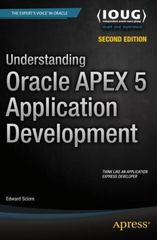Question
Write a program to check a C program for rudimentary syntax errors like unmatched parentheses, brackets and braces. Dont forget about quotes, both single and
Write a program to check a C program for rudimentary syntax errors like unmatched parentheses, brackets and braces. Dont forget about quotes, both single and double, escape sequences, and comments. (This program is hard if you do it in full generality.)
our teacher says we have reusable code so here is what is given fyi he says to edit the main only 1.24.c
//1.24.c
#include "files.h" #include #include #include
#define TAB_INTERVAL 10 #define MAX_TAB_INTERVAL 80
int main(int argc, const char *argv[]) { FILE *fin; FILE *fout;
// set tab_interval or use default int tab_interval = argc == 4 ? atoi(argv[3]) : TAB_INTERVAL; if (tab_interval > 80) { fprintf(stderr, "tabstops must be <= 80 characters "); exit(2); }
// open input and output files if (!open_io_files( argc, argv, &fin, &fout, 3, 4, "Usage: ./detab inputfile outputfile tab_interval (optional) ")) { exit(1); }
// process input file to remove tabs and substitute spaces int c; char maxspaces[MAX_TAB_INTERVAL + 1]; char spaces[MAX_TAB_INTERVAL + 1]; memset(maxspaces, ' ', sizeof(maxspaces));
int bytes_written = 0; while ((c = fgetc(fin)) != EOF) { if (c != '\t') { fputc(c, fout); ++bytes_written; } else { int bytes_to_tab = tab_interval - (bytes_written % tab_interval); strncpy(spaces, maxspaces, bytes_to_tab); spaces[bytes_to_tab] = '\0'; fputs(spaces, fout); bytes_written += strlen(spaces); } } closefiles(2, fin, fout); // must say number of files
return 0; } //files.h
// // files.h // detab // // Created by William McCarthy on 032//20. // Copyright 2020 William McCarthy. All rights reserved. //
#ifndef files_h #define files_h
#include #include #include
bool open_io_files(int argc, const char* argv[], FILE** fin, FILE** fout, int min_expected_argc, int max_expected_argc, const char* usage);
void closefiles(int n, ...);
#endif /* files_h */ //files.c
// // files.c //
#include "files.h"
bool open_io_files(int argc, const char *argv[], FILE **fin, FILE **fout, int min_expected_argc, int max_expected_argc, const char *usage) { /* open an input file, and optionally an output file */ if (argc < min_expected_argc || argc > max_expected_argc) { fprintf(stderr, "%s ", usage); return false; }
*fin = fopen(argv[1], "r"); if (*fin == NULL) { fprintf(stderr, "failed to open input file: '%s' ", argv[1]); return false; } // In this case, we don't want to open output file if (fout == NULL) { return true; } // everything cool
*fout = fopen(argv[2], "w"); if (*fout == NULL) { // output file failed to open fprintf(stderr, "failed to open output file: '%s' ", argv[2]); fprintf(stderr, "closing already open input file: '%s' ", argv[1]); fclose(*fin); return false; }
return true; }
// must include -- see files.h void closefiles(int n, ...) { // uses varargs (variable # of args) va_list pargs; va_start(pargs, n); // initialize the list ptr
for (int i = 0; i < n; i++) fclose(va_arg(pargs, FILE *)); // get next argument
va_end(pargs); // clean up }
Step by Step Solution
There are 3 Steps involved in it
Step: 1

Get Instant Access to Expert-Tailored Solutions
See step-by-step solutions with expert insights and AI powered tools for academic success
Step: 2

Step: 3

Ace Your Homework with AI
Get the answers you need in no time with our AI-driven, step-by-step assistance
Get Started


